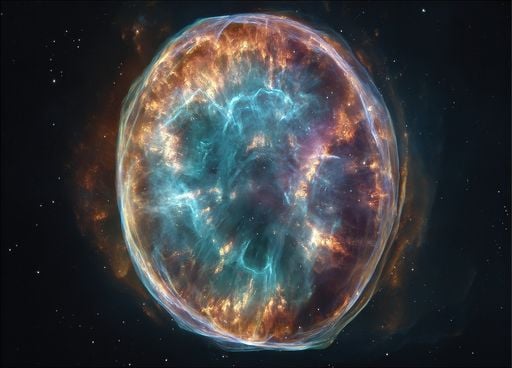Are we living in a computer simulation?
The notion that we are merely constructs in a virtual reality world might not be too far-fetched, says a physicist proposing a new law of physics

It’s a popular theory within a branch of science known as information physics that physical reality essentially consists of bits of information and that we are simply characters in an advanced virtual world.
The ‘simulated universe hypothesis’ suggests that what humans experience is actually an artificial reality, much like a computer simulation, in which they themselves are constructs. Now, a physicist has explored whether a new law of physics could support the much-debated theory.
Universal building blocks
Research suggests that information is the fundamental building block of the universe and has physical mass: it could even be the elusive dark matter that makes up almost a third of the universe, which Dr Melvin Vopson from the University of Portsmouth calls the mass-energy-information equivalence principle.
In 2022, Vopson discovered a new law of physics based on the second law of thermodynamics, which states that entropy, a measure of disorder in an isolated system, can only increase or stay the same. Entropy in information systems was also expected to increase over time, but Vopson found it remains constant or decreases – leading him to establish the second law of information dynamics, or infodynamics, which could impact genetics research and evolution theory.
“I knew then that this revelation had far-reaching implications across various scientific disciplines,” says Vopson, from the School of Mathematics and Physics. “What I wanted to do next is put the law to the test and see if it could further support the simulation hypothesis by moving it on from the philosophical realm to mainstream science.”
Vopson found that in biological systems, the second law of infodynamics challenged conventional understanding of genetic mutations, suggesting they follow a pattern regulated by information entropy. This could have profound implications for genetic research, evolutionary biology, genetic therapies, pharmacology, virology, and pandemic monitoring.
The paper also explains the behaviour of electrons in multi-electron atoms, which arrange themselves to minimise their information entropy, shedding light on atomic physics and stability of chemicals.
Cosmological requirement
The second law of infodynamics is also shown to be a cosmological necessity, with thermodynamic considerations applied to an adiabatically expanding universe supporting its validity.
“The paper also provides an explanation for the prevalence of symmetry in the universe,” explains Vopson. “Symmetry principles play an important role with respect to the laws of nature, but until now there has been little explanation as to why that could be. My findings demonstrate that high symmetry corresponds to the lowest information entropy state, potentially explaining nature's inclination towards it.”
He says this approach, where excess information is eliminated, resembles the process of a computer deleting or compressing waste code to save storage space and optimise power consumption.
“And as a result, supports the idea that we’re living in a simulation,” he adds.
The paper argues the second law of infodynamics supports this principle, possibly validating the idea that information is a physical entity, equivalent to mass and energy.




